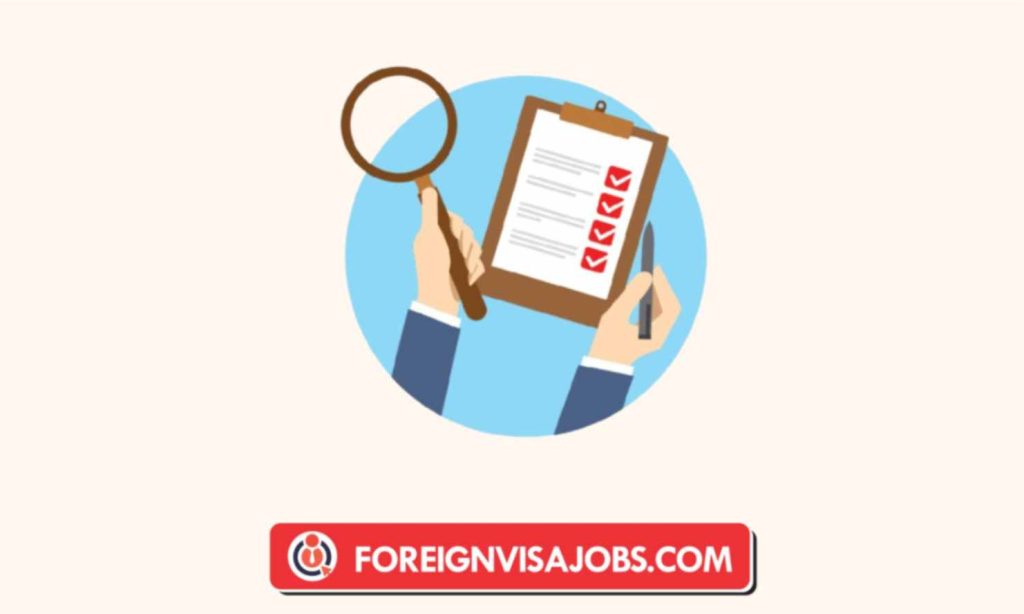Germany, a leading economic power in Europe, offers excellent career opportunities, especially in the tech and data sectors.
If you’re looking to move to Germany for a data analyst role with visa sponsorship, this guide covers everything you need to know, from job responsibilities to qualifications, requirements, and application procedures.
Data analysts are in high demand in Germany, and many companies are willing to sponsor visas for qualified candidates from around the world.
Details of Data Analyst Jobs in Germany with Visa Sponsorship
- Title: Data Analyst Jobs in Germany with Visa Sponsorship
- Company: Data Analyst
- Qualifications: Degree in Data Science.
- Employment Type: 40 hours weekly
- Salary: €40,000 – €100,000+
- Experience: 1-3 Years of Experience
- Location: Germany
Responsibilities of Data Analyst Jobs in Germany
Data analysts in Germany have a range of responsibilities that typically include:
- Data Collection: Gathering relevant data from multiple sources, both internal and external.
- Data Cleaning and Preparation: Organizing and filtering raw data to ensure it is ready for analysis.
- Data Analysis: Using statistical tools and software to analyze and interpret complex datasets.
- Reporting and Visualization: Creating reports and visualizations that present data findings to management or other departments.
- Trend Identification: Identifying trends and patterns within the data to support business decision-making.
- Collaborating with Departments: Working closely with other departments, such as marketing, finance, and operations, to support their data needs.
- Advising on Data-Driven Decisions: Providing insights and recommendations based on data analysis to improve business strategies.
Qualification and Skills for Data Analyst Jobs in Germany
To secure a data analyst role in Germany with visa sponsorship, you will need specific qualifications and skills:
- Educational Background: A degree in data science, statistics, mathematics, computer science, or a related field.
- Technical Skills: Proficiency in data analysis tools like Python, R, SQL, and Excel is essential. Knowledge of data visualization tools like Tableau or Power BI is a plus.
- Statistical Knowledge: A strong understanding of statistical concepts and methodologies is crucial.
- Data Management Skills: Experience working with large datasets and databases such as MySQL or MongoDB.
- Problem-Solving Abilities: Analytical skills to derive actionable insights from complex data.
- Communication Skills: Ability to translate complex data into understandable insights for non-technical stakeholders.
- German Language Proficiency: While many international companies operate in English, knowing German can be a significant advantage.
Requirements for Data Analyst Jobs in Germany
German employers generally expect candidates to meet the following requirements for visa-sponsored data analyst roles:
- Valid Work Visa: You’ll need a valid work visa, such as the EU Blue Card, which can be sponsored by the employer.
- Relevant Work Experience: At least 1-3 years of experience in a data analyst or related role.
- Portfolio of Past Work: Demonstrated experience through a portfolio or case studies showcasing previous data analysis projects.
- German Residence Permit: In addition to the work visa, you will need a residence permit to live in Germany legally.
- Health Insurance: Proof of health insurance is mandatory for all employees in Germany.
Salary Expectations for Data Analyst Jobs in Germany with Visa Sponsorship
The salary for data analyst jobs in Germany can vary based on the company size, location, and your level of experience.
Here’s an overview of salary expectations:
| Experience Level | Salary Range (EUR/Year) |
|---|---|
| Entry-Level (0-2 years) | €40,000 – €55,000 |
| Mid-Level (3-5 years) | €55,000 – €75,000 |
| Senior-Level (5+ years) | €75,000 – €100,000+ |
The salary can increase depending on the industry, with sectors like finance, automotive, and technology often offering higher compensation.
Benefits of Data Analyst Jobs in Germany with Visa Sponsorship
Besides the competitive salaries, data analysts in Germany enjoy several benefits, especially when hired with visa sponsorship.
These include:
- Job Security: Germany’s strong economy provides stability and security for skilled professionals.
- Work-Life Balance: Germany is known for its excellent work-life balance, with typical workweeks averaging around 40 hours.
- Health Insurance: Access to world-class healthcare through Germany’s mandatory health insurance system.
- Paid Holidays: Employees enjoy at least 24 paid vacation days per year.
- Cultural Diversity: Working in Germany allows you to be part of an international workforce, with many companies embracing diversity.
- Professional Growth: The opportunity to work with cutting-edge technology and data solutions in a highly developed market.
How to Apply for Data Analyst Jobs in Germany with Visa Sponsorship

Applying for a data analyst job in Germany that offers visa sponsorship involves several steps:
- Job Search: Look for companies that explicitly mention visa sponsorship in their job listings. Websites like LinkedIn, Indeed, and specialized job boards such as ForeignVisaJobs.com are great starting points.
- Tailor Your CV: Customize your CV and cover letter to match the job requirements, highlighting your relevant skills and experience.
- Prepare for Interviews: Be ready for technical interviews that may include data-related problems or case studies.
- Obtain a Job Offer: Once you receive a job offer, the employer will apply for your work visa (usually an EU Blue Card).
- Visa Application: Provide the necessary documents for your visa application, such as your employment contract, proof of qualifications, and health insurance.
- Relocation: Once your visa is approved, you can begin your relocation to Germany.
Quick One: We have other related German jobs here.
Frequently Asked Questions
How do I get a sponsored visa to work in Germany?
To get a sponsored visa to work in Germany, you must first secure a job offer from a company willing to sponsor your visa. After that, you can apply for the EU Blue Card, which is a common work visa for highly skilled workers in Germany.
Do companies in Germany sponsor work visas for data analysts?
To get a sponsored visa to work in Germany, you must first secure a job offer from a company willing to sponsor your visa. After that, you can apply for the EU Blue Card, which is a common work visa for highly skilled workers in Germany.
How much does a data analyst make in Germany?
The average salary for a data analyst in Germany ranges from €40,000 to €100,000 per year, depending on experience and industry. Senior-level analysts or those with specialized skills tend to earn higher salaries.
Conclusion
Germany offers exciting opportunities for data analysts looking for visa-sponsored jobs.
With its robust economy, excellent quality of life, and forward-thinking companies, moving to Germany as a data analyst can be a rewarding career choice.
To succeed in this competitive field, make sure to hone your skills, prepare your application materials carefully, and target companies that are open to sponsoring international talent.
By following the steps outlined in this guide, you can navigate the process and secure a promising role as a data analyst in Germany with visa sponsorship.






